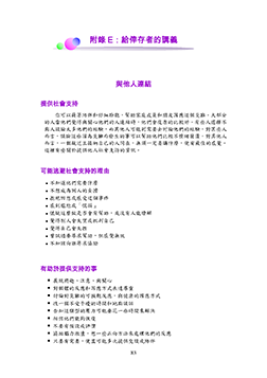
PFA: Connecting with Others Giving Social Support (in Mandarin)
Is a handout from Psychological First Aid Field Operations Guide (PFA).
The following resources on child trauma were developed by the NCTSN. To find a specific topic or resource, enter keywords in the search box, or filter by resource type, trauma type, language, or audience.

Is a handout from Psychological First Aid Field Operations Guide (PFA).
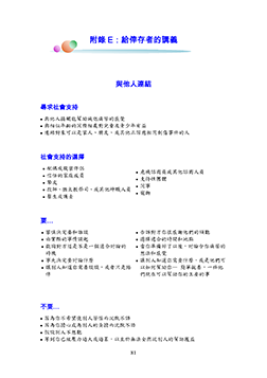
Is a handout from Psychological First Aid Field Operations Guide (PFA). This handout offers information to survivors on seeking social support, social support options, what survivors can do, what survivors should not do, and ways to get connected.
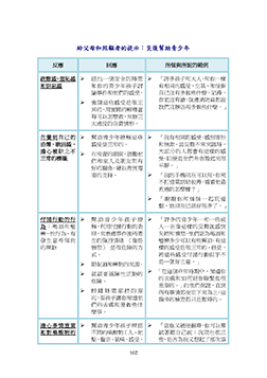
Is a handout from Psychological First Aid Field Operations Guide (PFA). This handout provides parents with common reactions after a disaster, ways to respond to those reactions, and examples of things you can say to your adolescent.
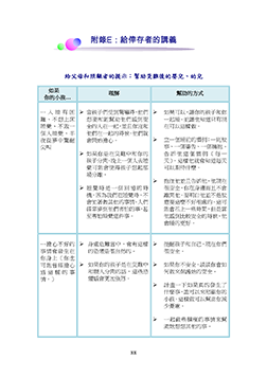
Is a handout from Psychological First Aid Field Operations Guide (PFA).
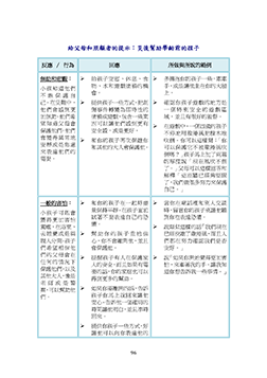
Is a handout from Psychological First Aid Field Operations Guide (PFA).
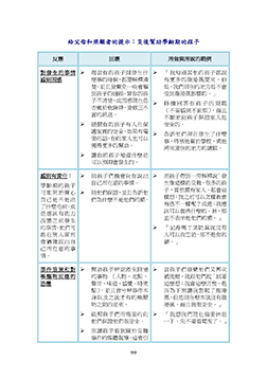
Is a handout from Psychological First Aid Field Operations Guide (PFA).
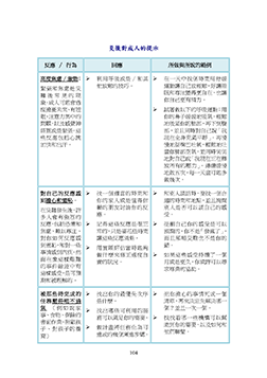
Is a handout from Psychological First Aid Field Operations Guide (PFA). This handout provides people with common reactions after a disaster, ways to respond to those reactions, and examples of things you can say to another adult. This is the Mandarin Chinese version 成人技巧
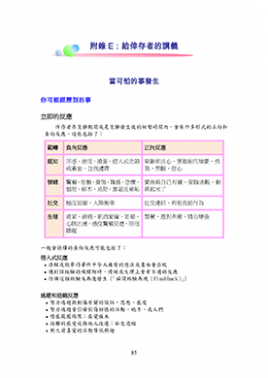
Is a handout from Psychological First Aid Field Operations Guide (PFA). This handout offers information on immediate reactions that may occur, common negative reactions that may continue, reactions to the death of a loved one, ways to cope, and strategies that don't work.
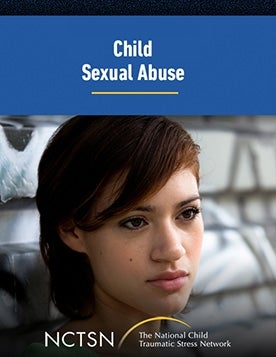
Discusses special areas of vulnerability, risk factors, disclosure, and cultural competency when working with LGBTQ youth after sexual abuse.
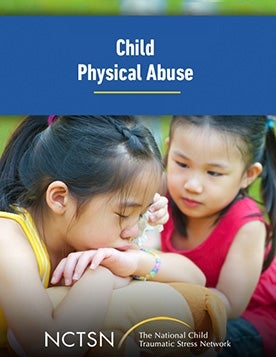
Highlights evidence-based interventions aimed at empowering families, including individual treatment for children and skill building for parents.
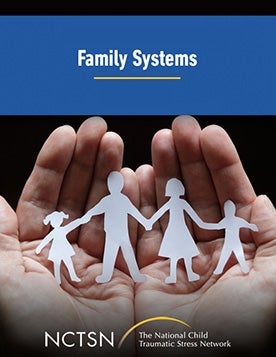
Discusses the reasoning and importance of including a family in trauma-informed care. This webinar presents theories that explain the role of the family in response to trauma and reviews objectives and core therapeutic strategies that can be used with families to support positive adaptation.
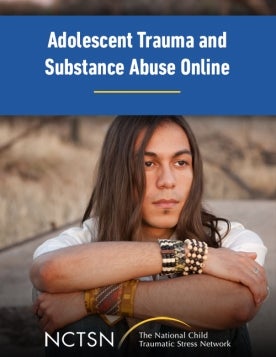
Provides training and materials for mental health clinicians and substance abuse treatment providers on the complex intersections between psychological trauma and co-occurring substance abuse and dependency.